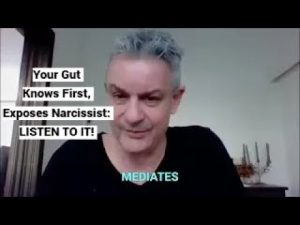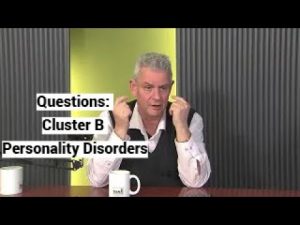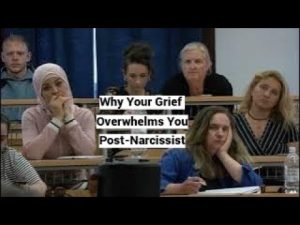- 1.1 1. Introduction and Speaker Background
- 1.2 2. Definition and Context of Cheating and Triangulation
- 1.3 3. Cheating and Triangulation in Obsessive, Sick Relationships
- 1.4 4. Cheating and Triangulation by Narcissists
- 1.5 5. Types of Triangulation
- 1.6 6. Social and Gender Dynamics in Cheating and Triangulation
- 1.7 7. Conclusion: Emotional and Relational Outcomes
Cheating, Triangulation in Sick Relationships: Power Play, Revenge, Entitlement
1. Introduction and Speaker Background
- The meeting is led by a psychology professor and author specializing in narcissism and narcissistic abuse, discussing cheating and triangulation in relationships, especially in obsessive and narcissistic contexts. [00:00]
2. Definition and Context of Cheating and Triangulation
- Cheating is addressed as extradyadic or extramarital sex, often linked with triangulation, where a third party is involved to manage emotions or power dynamics in a relationship. [02:15]
3. Cheating and Triangulation in Obsessive, Sick Relationships
- These couples are mutually abusive and emotionally dependent, communicating through pain and betrayal to establish power hierarchies. [03:20]
- Cheating is not an exit strategy but a tool to cement the dysfunctional relationship and provoke emotional responses. [05:10]
- Cheating and triangulation serve multiple functions: revenge, restoring power symmetry, catering unmet needs, and reaffirming internalized bad-object beliefs rooted in childhood trauma. [06:45]
- Such couples often view abuse, jealousy, cheating as affirmations of love; they feel alive only through pain. [07:50]
- External partners used in cheating are generally objects or instruments without emotional significance; the primary focus is on the main partner. [14:30]
- Gender role inversion is common, with women becoming sexually predatory and men emotionally dysregulated within these relationships. [17:00]
- Parental abuse and trauma influence these dynamics, leading partners to emulate abusive behaviors in adult relationships. [18:40]
4. Cheating and Triangulation by Narcissists
- Narcissists cheat for complex reasons including seeking narcissistic supply, novelty, asserting superiority and entitlement, control issues, and insecurity about intimacy. [20:30]
- Narcissists maintain a “stable island” in chaos, showing stability in some life areas while being chaotic in others like relationships. [21:45]
- Cheating is a form of rebellion against social norms and an assertion of their special status. [22:50]
- Narcissists use cheating also as a strategy to prevent intimacy, which they fear due to insecure attachment. [23:50]
- They rationalize cheating either as an attempt to improve the relationship or as proof the relationship was already failing. [25:30]
5. Types of Triangulation
- Two main types discussed: breakup triangulation (aimed at ending the relationship) and restorative triangulation (aimed at reviving it). [27:00]
- Triangulation often involves overt cheating or emotional manipulation using a third party. [27:40]
- The use of triangulation is risky and can escalate to dangerous outcomes including sexual assault or relationship dissolution. [29:10]
- Impulsive behavior, poor impulse control, and lack of empathy are common traits in habitual triangulators, often with borderline or psychopathic tendencies. [30:00]
6. Social and Gender Dynamics in Cheating and Triangulation
- Men often misinterpret female behavior due to sexual over-perception bias, leading to aggressive responses. [31:20]
- Social structures, cultural expectations, and unresolved trauma contribute to these harmful dynamics and maintain cycles of abuse. [32:40]
7. Conclusion: Emotional and Relational Outcomes
- These dysfunctional behaviors, including cheating and triangulation, perpetuate cycles of trauma bonding and emotional injury in the primary partnership. [33:50]
- External partners are collateral damage in ongoing abusive power plays. [34:30]
- Despite harm, partners in these relationships often cannot separate due to intertwined trauma and addiction to the dynamics of pain and control. [35:00]
This detailed summary encapsulates the multi-faceted analysis of cheating and triangulation in pathological relationship dynamics, specifically in obsessive and narcissistic relationships, as discussed in the meeting.






